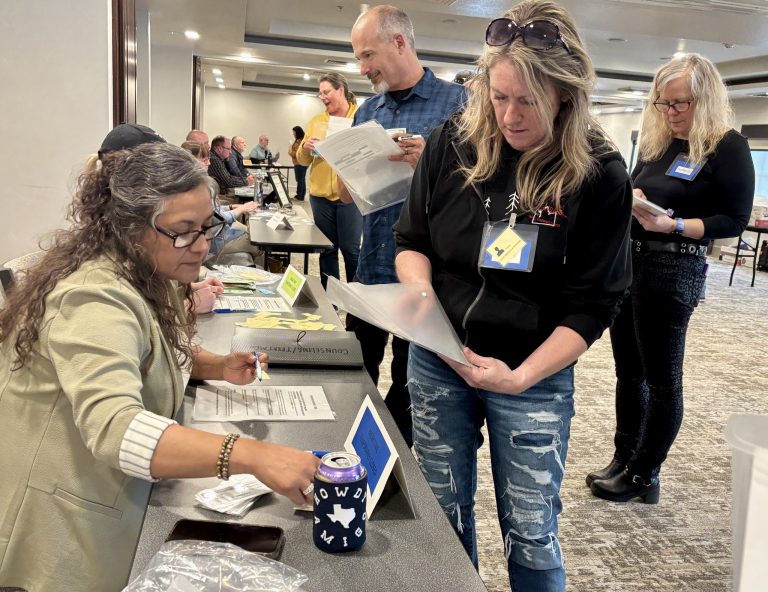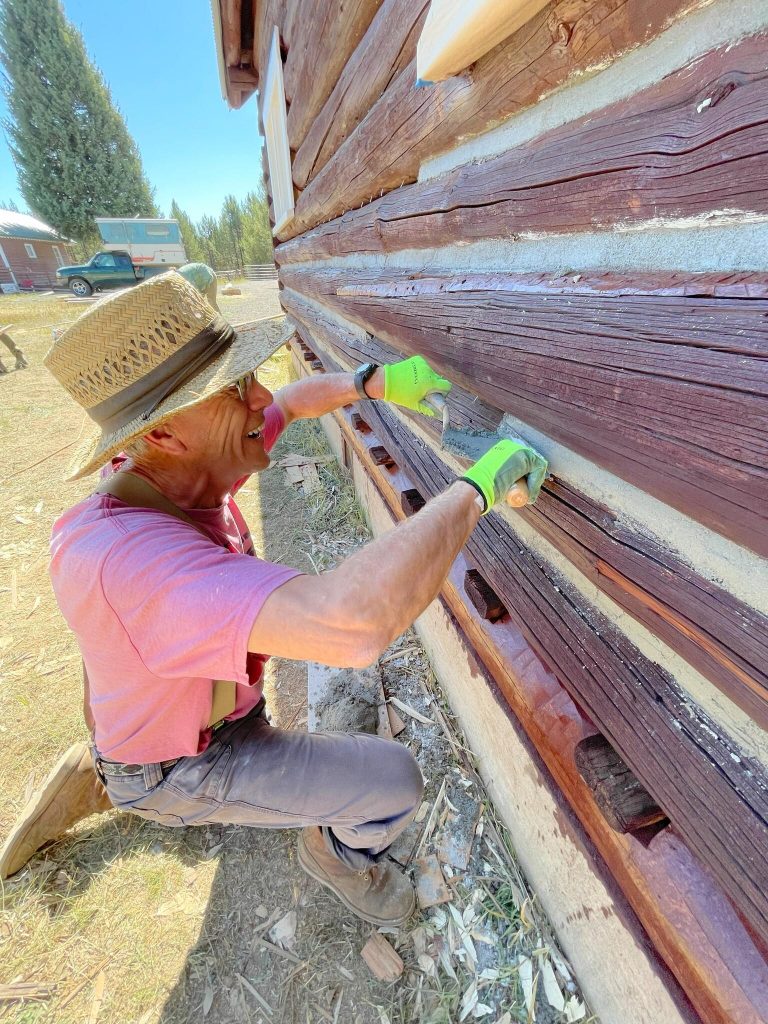BY MAX SILVERSON
The Star-News
Traci Jamieson works as the Executive Director of Ignite Idaho in McCall, but last week she spent an hour as “Nancy,” a woman on probation for internet fraud and drug possession just trying to make it through the week.
Jamieson was one of 24 people who participated in a simulated probation event at the Evergreen Hotel in McCall last week.
The event, hosted by the Valley County Opioid Response Project (VCORP) and Idaho Department of Juvenile Corrections was designed to highlight the difficulties that people can face in the real world when on parole.
The “walk a mile in their shoes” perspective shows the unintentional barriers that often inhibit people from successfully completing probation terms, said VCORP facilitator Shelly Hitt.
Each participant was given the identity of someone exiting prison on parole, each with time served for a specific crime and tasks to complete with limited money and resources.
Those tasks needed to be done on specific days in a week, with each day shortened to about 20 minutes. Participants moved between several stations like job services, counseling, a grocery store or simulated meetings with probation officers, among other essential tasks for someone coming out of prison.
If they could not complete each task assigned to them, that person would fail parole and be sent back to prison.
“The most important take away from this event for me was probation isn’t just about monitoring the youth, it’s about how can we hold them accountable at the same time as we help support them in order for them to build their future and become successful,” Jamieson said.
“The more support that was given, the more successful we were able to feel,” she said. “If we understand all the barriers and opportunities, we can help individuals on probation be more successful, it allows us to be part of the solution.”
Jamieson participated in the exercise to gain a better understanding of how people work through the parole process.
Payette Lakes Middle School Principal Jake Olson participated in the event because over the years, several students or parents of PLMS students have been on probation.
“My takeaway was the simulation was a realistic experience of the many hurdles for people who have to navigate the judicial probation system…it gave me instant empathy,” said Olson, who was assigned the identity of “Russ,” a man on parole after a six-year prison term for aggravated battery and possession of methamphetamines.
“The simulation reminded me of the difficulties families face if a member of the family is on probation and I think the school can be helpful in the process if we are educated on the added hardships,” he said.
Valley County Sheriff Kevin Copperi participated in the event as “Aaron,” who served seven years for drug manufacturing with intent to distribute.
“It is interesting to see some of the challenges that some people face when they are placed on probation,” Copperi said. “They have a lot of expectations and life keeps happening. I came away with the feeling that probation is not an easy thing to get through, but you can apply yourself and get through it.”
“We all need to work together as a team to try to provide the best avenue of success to folks that find themselves in the system,” he said.
Out of 24 participants in the event last week, only one person successfully completed probation.
Probation should not be that difficult in real life, said Valley County Director of Court Services DeeDee Phillips.
“We believe in building relationships with the clients and families. We meet them where they are and assist where they feel they need it. It is a partnership, not power and control,” Phillips said.
“However, the client needs to meet us, be open to options and resources as well. The process is not always fun, but it does not have to be as hard as the simulation shows,” she said.
Valley County has four probation officers.
Two misdemeanor probation officers oversee about 105 clients, and one juvenile probation officer has 15-20 clients. Another officer supports over 100 unsupervised clients, Phillips said.
“A probation officer’s primary role is to supervise individuals who have been placed on probation, ensuring they adhere to the conditions set by the court,” she said.
Probation officers assess risks and needs, develop personalized supervision plans, monitor compliance through home and office visits, and offer resources and support to assist probationers to successfully complete probation and not reoffend,” Phillips said.




